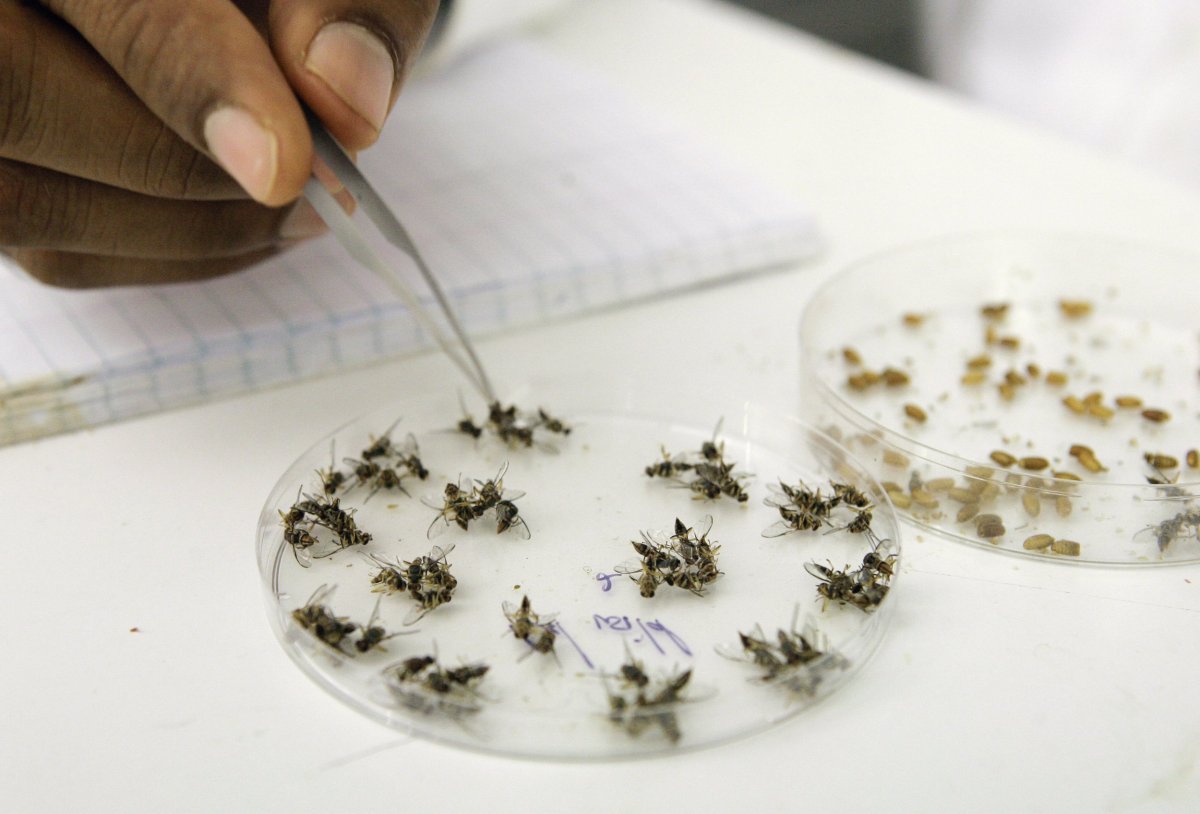Who doesn't like a good orgasm? New research shows that experiencing pleasure during ejaculation is so widespread in the animal kingdom that even male fruit flies love it.
Researchers at Bar-Ilan University and HHMI Janelia Research Campus, USA used a neurological technology called optogenetics to genetically engineer male fruit flies so red light would trigger their neuron response to ejaculate, even without a partner.
They placed these flies in containers that had red light at one end and no red light at the other. Naturally, the flies preferred the light that would make them launch their loads.

However, fruit flies can't see red light. To figure out if the flies would seek the reward of firing their DNA rifles, the researchers added a scent to the area where there was red light, and another to the neutral area. Even in the absence of that light, the flies sought the scent that they associated with red light, indicating that they enjoyed the memories that they got to relive through smells. They published their research in the journal Current Biology.
This indicates that the pleasure associated with ejaculating evolved in male animals long ago, and is shared by many species. "I think our study suggests that this is a very ancient machinery and its conserved throughout animal kingdom," Galit Shohat-Ophir, whose lab at Bar Ilan University hosted the research, told Newsweek.
And a good time was had by all
Carin Bondar, author of Wild Sex: The Science Behind Mating in the Animal Kingdom, agreed that this work is important in understanding sexual pleasure among male invertebrates.
However, learning that flies enjoy the Big O may come as a surprise to those who have heard the rumor that only humans and dolphins have sex for pleasure. That's only a rumor, one which Bondar describes as "completely untrue."
"There are innumerable accounts of enjoyable sex across the mammalian world, we can assume that with the evolution of the clitoris that female mammals CAN enjoy sex too," Bondar wrote in an email to Newsweek.
However, Bondar noted that this research is specific to male fruit flies and a lot of sex in the animal kingdom is not pleasurable for the female. "There are always (at least) two genders to keep in mind when we talk about the enjoyment of sex," she said. "What is enjoyable for a male (successful ejaculation) is generally NOT what is enjoyable for a female across many invertebrate and vertebrate groups."
Drinking away problems
As important as fly-jizz is to research in and of itself, there was a bigger point to make. The graduate student who led the research, Shir Zer-Krispil, hoped to use these flies to better understand what drives animals (and possibly people) to use substances like alcohol. Zer-Krispil helped to create the above video, which was produced by Bar-Ilan University and Vikki Academy.
The researchers offered the fruit flies an option: liquid food or liquid food spiked with ethanol. Ethanol activates reward centers in the brain and the more deprived you are of those pleasurable feelings, the more you want them.
Fruit flies who had not undergone the red light treatment preferred the ethanol-spiked food, like many humans might if given a choice. However, those who had recently blown their respective wads preferred the ethanol-free food.
"The experiences that fill up the reserve well of reward in the brain [like ejaculating] make external rewards like ethanol less appealing," Shohat-Ophir said.
The next question is: what does this mean for humans with addiction problems? Would humans react the same way in a similar study?
And who would volunteer for such an experiment?
Uncommon Knowledge
Newsweek is committed to challenging conventional wisdom and finding connections in the search for common ground.
Newsweek is committed to challenging conventional wisdom and finding connections in the search for common ground.
About the writer
Kristin is a science journalist in New York who has lived in DC, Boston, LA, and the SF Bay Area. ... Read more
To read how Newsweek uses AI as a newsroom tool, Click here.








